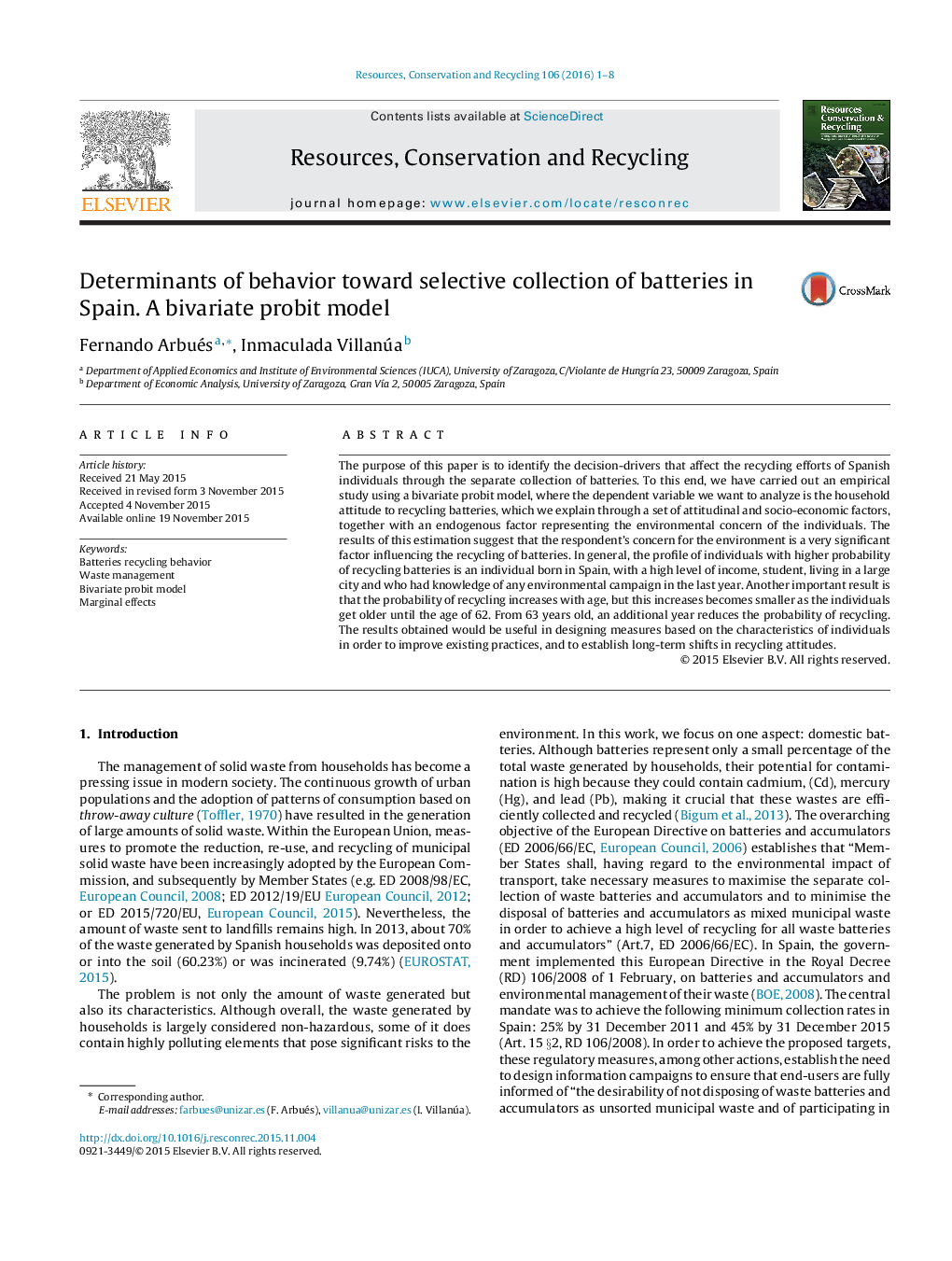| Article ID | Journal | Published Year | Pages | File Type |
|---|---|---|---|---|
| 1062753 | Resources, Conservation and Recycling | 2016 | 8 Pages |
•We focus on recycling of domestic batteries and accumulators.•We specify a bivariate probit model to study which factors affect recycling.•The environmental concern is an endogenous regressor.•The environmental concern has great influence on recycling.•The probability of recycling batteries increases up to the age of 62.
The purpose of this paper is to identify the decision-drivers that affect the recycling efforts of Spanish individuals through the separate collection of batteries. To this end, we have carried out an empirical study using a bivariate probit model, where the dependent variable we want to analyze is the household attitude to recycling batteries, which we explain through a set of attitudinal and socio-economic factors, together with an endogenous factor representing the environmental concern of the individuals. The results of this estimation suggest that the respondent's concern for the environment is a very significant factor influencing the recycling of batteries. In general, the profile of individuals with higher probability of recycling batteries is an individual born in Spain, with a high level of income, student, living in a large city and who had knowledge of any environmental campaign in the last year. Another important result is that the probability of recycling increases with age, but this increases becomes smaller as the individuals get older until the age of 62. From 63 years old, an additional year reduces the probability of recycling. The results obtained would be useful in designing measures based on the characteristics of individuals in order to improve existing practices, and to establish long-term shifts in recycling attitudes.
